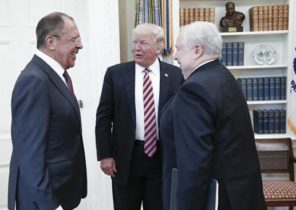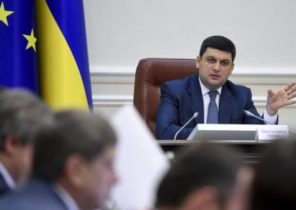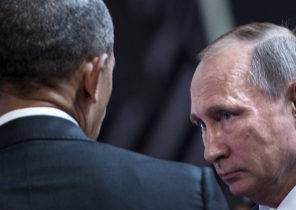As a Xhosa Prince Salman Bin stone found…
“Oil dispute” with Russia, the ongoing war in Yemen, huge payouts, which had to let Donald Trump in by supporting “the war effort” by Washington in Syria,…plus unprecedented low oil prices as well as moments of subjective nature, among which the error personally to the crown Prince, and in fact the head of state, Mohammed Bin Salman, has led the country to a very sad state of Affairs in the economy… So sad that Riyadh has decided to resort to the so-called “unpopular” measures and begin to solve problems at the expense of the people, more specifically — at the expense of taxpayers. The government has decided on the budget sequester and to offset the losses through increased taxes 3 times.
The crown Prince of the Kingdom of Saudi Arabia Mohammed bin Salman, more precisely, not himself, but the disastrous results of his policy have led the government to the fact that one of the richest countries in the world with enormous oil revenues, is now forced to go to the budget sequestration. The war in Yemen, costly support for various terrorist groups across the Middle East, the construction of luxury villas and palaces, purchase of collections of paintings, maloobespechennye huge investment in the activities of foreign companies, huge sums of money, issued by the President of the United States Donald Trump, and recently also the unwillingness to seek a compromise with Russia in terms of oil production, which led to collapse of agreements by OPEC and OPEC+, — this is not a complete list of the steps that blamed the crown Prince many critics of his policies. And which ended with the budget sequestration. But the most important miscalculations, which played a crucial role and provoked a recession is started by Riyadh “oil war”: in defiance of Russia’s intention to increase the production, instead of victory in the oil market, has brought an unprecedented collapse in oil prices, to a level never seen before. On some days the price fell below $ 20 per barrel. This story in world energy markets is not yet known. And now, frantically trying to patch the giant hole, resulting in the country’s budget, the government considered the situation hopeless and have not found the best ways to increase the tax burden on its citizens.
The REUTERS news Agency in this regard, reported that Saudi Arabia has suffered from the fall in oil prices and the crisis in energy markets caused by the pandemic coronavirus, intends to suspend social payments three times to increase the value-added tax. State news Agency of Saudi Arabia also announced on may 11 that the social benefits from the beginning of June will be suspended, and, in addition, the value added tax will be increased from 5% to 15%.
Earlier, the Minister of Finance of the Kingdom Mohammed al-Jadaan said: “according to calculations, until you approach the end of the second quarter of this year, to judge how strongly influenced by outbreaks of coronavirus infection in the country’s economy, and to assess fully all the negative consequences from it, will be impossible.” And also said that Riyadh is thinking about the additional loans from international organizations, to compensate reduction of receipts in the budget. From his words followed that this year the volume of loans will be larger than in the previous year.
Notable reaction to the “unpopular” decisions of the Saudi authorities Mohammed Ali al-Houthi, President of the Supreme Revolutionary Committee of Yemen, who commented on his page on “Twitter” Riyadh’s intention to increase tax rates: “the Steps the government of Saudi Arabia to increase taxes, the suspension of important projects, the budget sequestration, the cancellation of social benefits constitute only 25% of the expenses of the state for military aggression against the Yemeni people.. So would it not be better to stop funding the war against Yemen than to impose their own people to increase taxes? Then they won’t have to sequester the budget…”.
On the other hand, Muhammad Ibn Abdullah al-Jadaan, the Minister of Finance, economic development and planning Kingdom stated that the global crisis associated with the pandemic coronavirus, immediately struck three blows to the economy of Saudi Arabia — and if, say, the government will not be able to cope with their consequences, each of these blows, alone, able to bring down and destabilize the entire fiscal system of the country.
The Minister of economy of Saudi Arabia described these three shocks on the economy: the first one caused an unprecedented drop in demand for oil on world markets, which in turn led to falling prices for raw materials and to reduce the country’s income from oil. And the latter greatly swell the budget of the Kingdom. Second shot — those extraordinary measures which the state had to take in order to combat the epidemic of the coronavirus and that actually led to a complete cessation of trade and economic activities in the country, which brought in the end, the actual termination of the “non-oil” exports and again, the end of economic growth. The third blow to the economy of Saudi Arabia is an unplanned expenditure of the country, again associated with the epidemic of the coronavirus, and the measures that should strengthen public confidence in the health sector. All these problems led, according to the Minister, to falling state revenues and to the forced strengthening of the tax burden.
It is obvious that the Kingdom needs now urgently to break the deadlock in which it appeared, including due to adventurous policy of those who actually run the country. But the question arises: how valid is the ways offered by the government for the withdrawal of Saudi Arabia from this impasse, which it calls “priority”? Or, rather, the way — that other, as another, even more dangerous adventure?
Special report prepared by the “news Service” Kayhan







